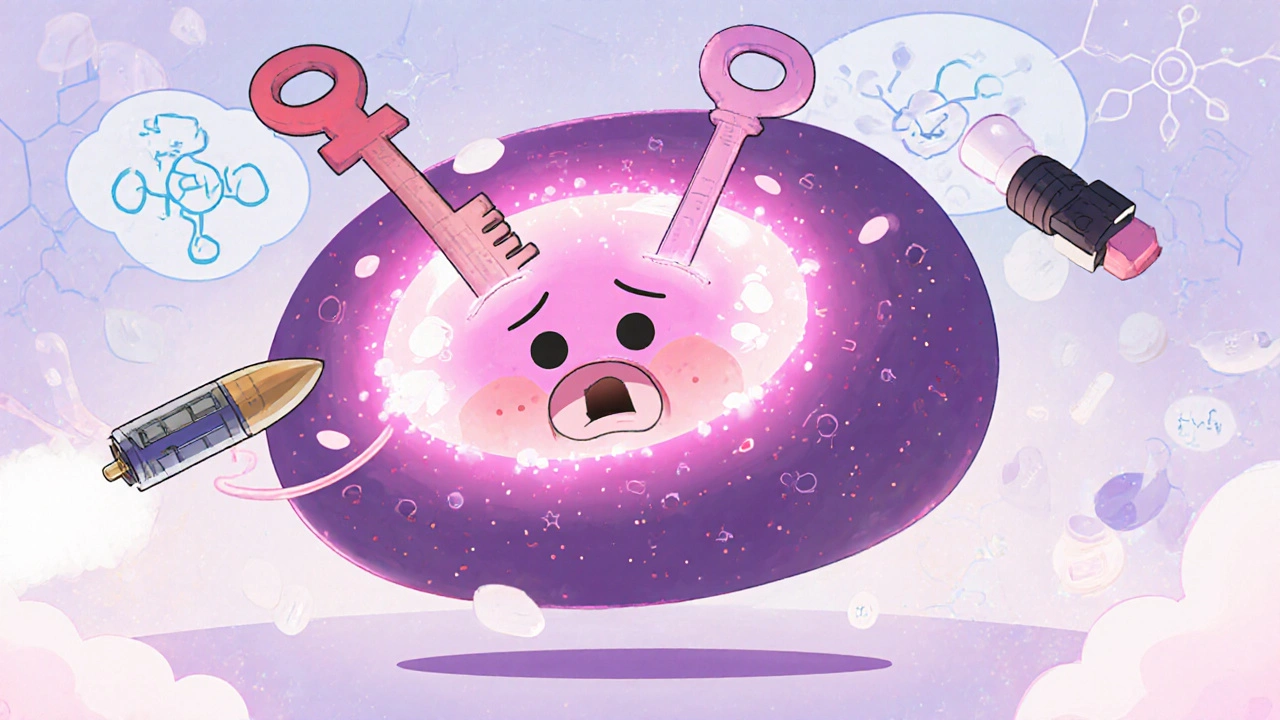When cancer cells grow too fast because they make too much of a protein called HER2, a receptor protein that promotes cell growth and is overexpressed in some cancers. Also known as Human Epidermal Growth Factor Receptor 2, it turns normal cells into aggressive tumors. HER2-targeted treatment stops this process by blocking the protein’s signal, slowing or shrinking tumors in patients with HER2-positive cancer.
This approach isn’t one-size-fits-all. It’s only used when tests show the cancer is HER2-positive — a label that applies to about 15-20% of breast cancers and some stomach cancers. The most common drugs in this category include trastuzumab, a monoclonal antibody that binds to HER2 and signals the immune system to destroy cancer cells, and pertuzumab, a similar antibody that blocks HER2 from pairing with other receptors. Together, they’re often used with chemo to boost survival rates. Other options like ado-trastuzumab emtansine (T-DM1) and fam-trastuzumab deruxtecan (Enhertu) deliver chemo directly to HER2 cells, reducing damage to healthy tissue.
HER2-targeted treatment changed the game for patients who once had very poor outcomes. Before these drugs, HER2-positive cancers were among the most aggressive and hardest to treat. Now, many patients live years longer — even decades — with proper management. But it’s not without side effects. Heart problems, fatigue, and diarrhea are common. That’s why treatment is closely monitored. It also doesn’t work for everyone. Some tumors develop resistance over time, which is why researchers are constantly testing new combinations and next-gen drugs.
What you’ll find in the posts below isn’t just a list of drugs. It’s a practical look at how these treatments fit into real-life care — from managing side effects to understanding why generics aren’t always an option, how combination therapies work, and what alternatives patients explore when standard treatments stop working. These aren’t abstract theories. They’re stories from clinics, pharmacies, and homes where people are living with HER2-positive cancer every day.

HER2-positive breast cancer, once aggressive and hard to treat, now has multiple targeted therapies that improve survival and quality of life. Learn how trastuzumab, T-DXd, tucatinib, and other drugs work, their side effects, and what’s next in treatment.
View more